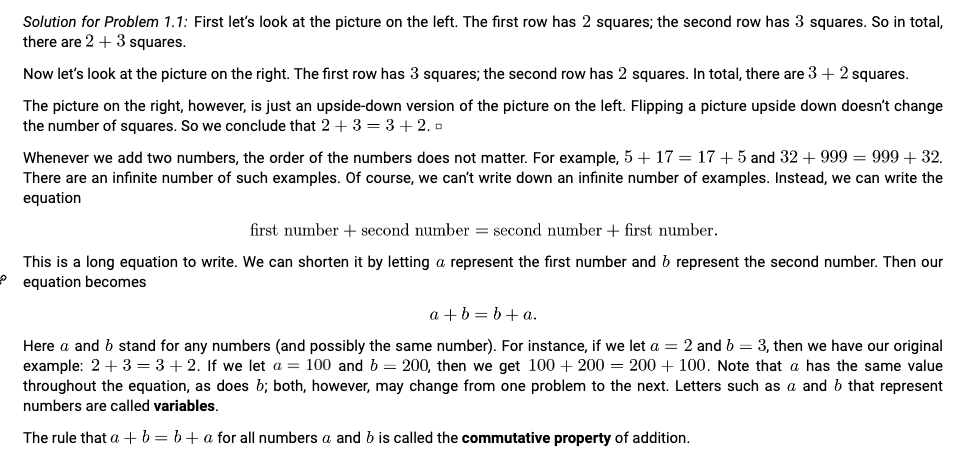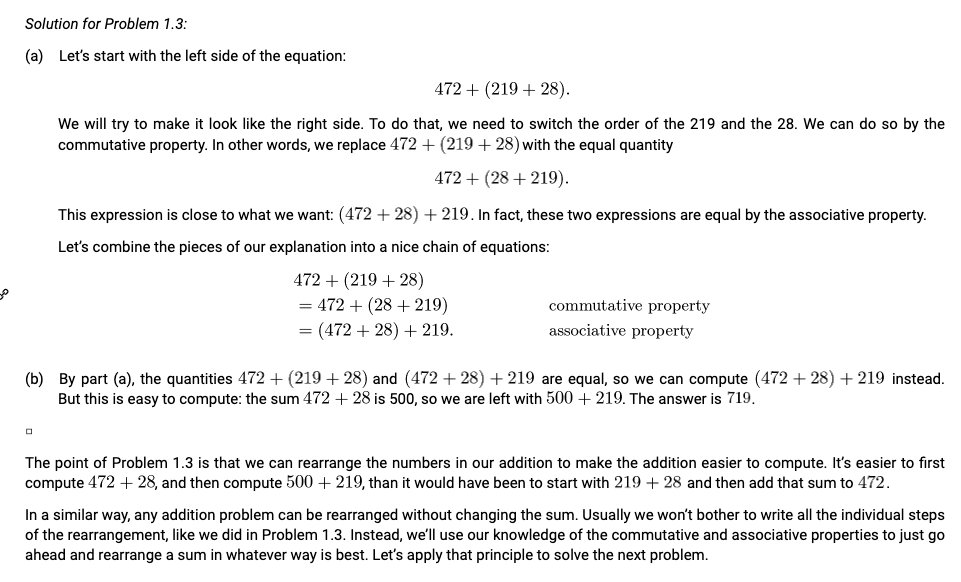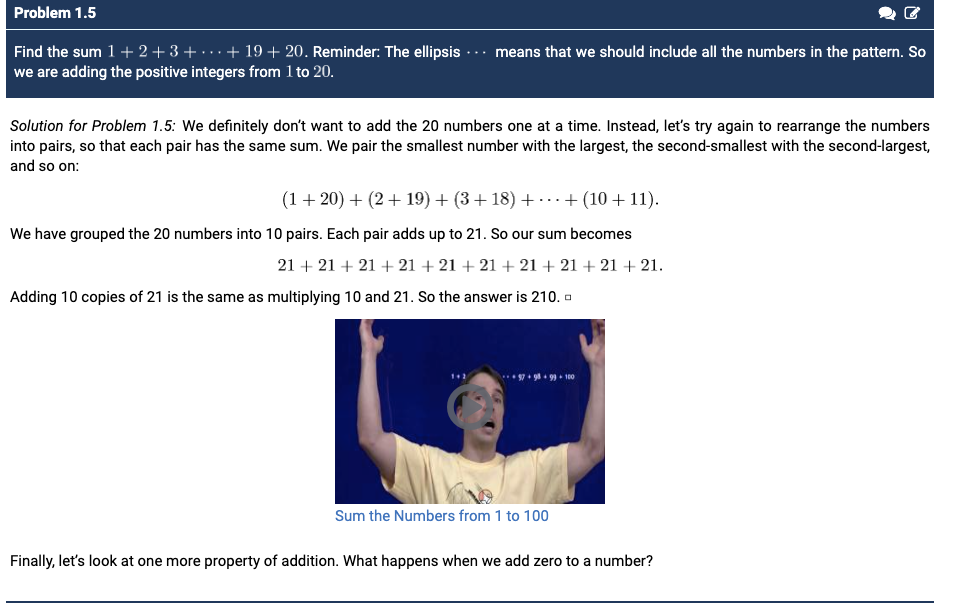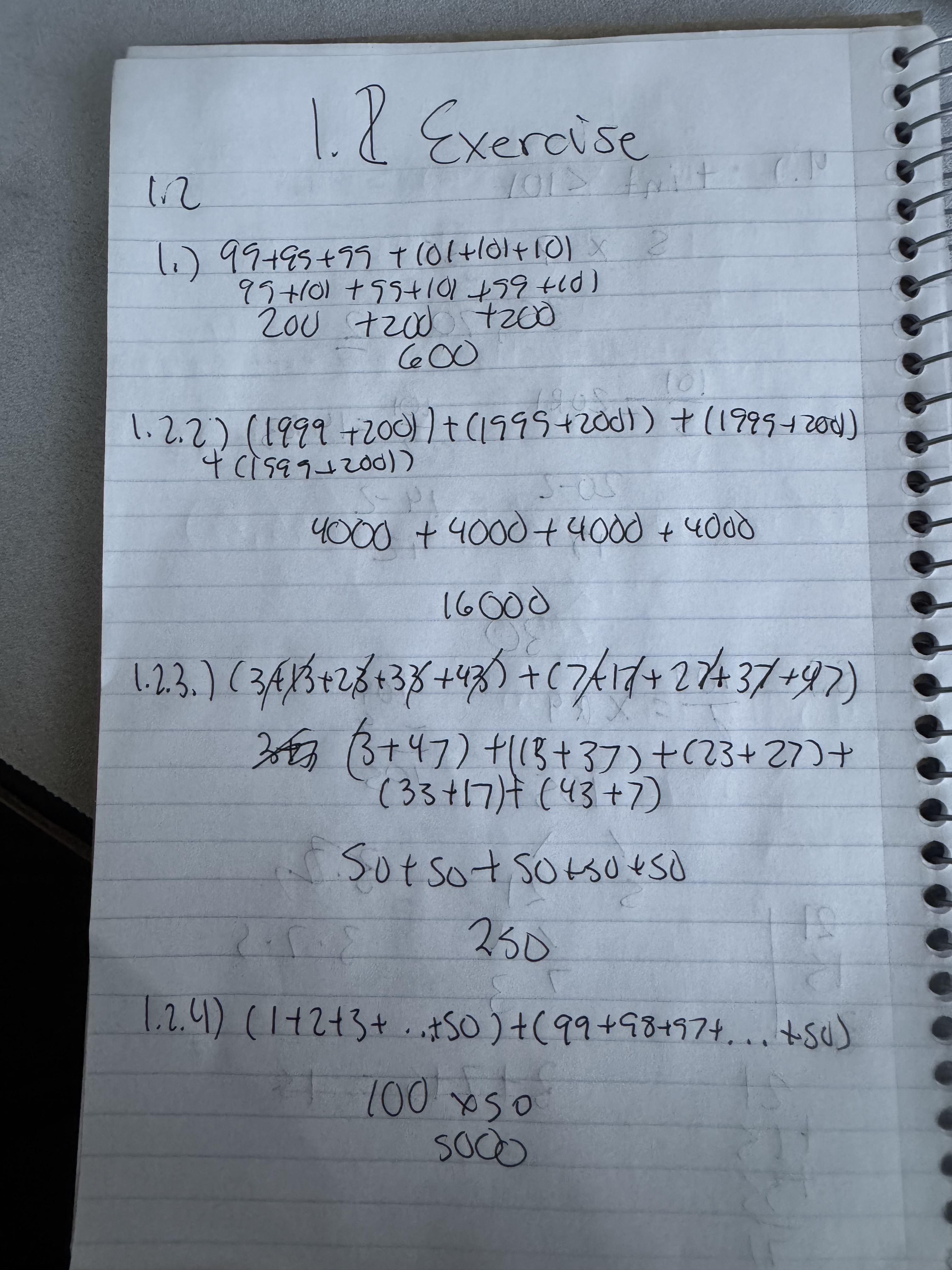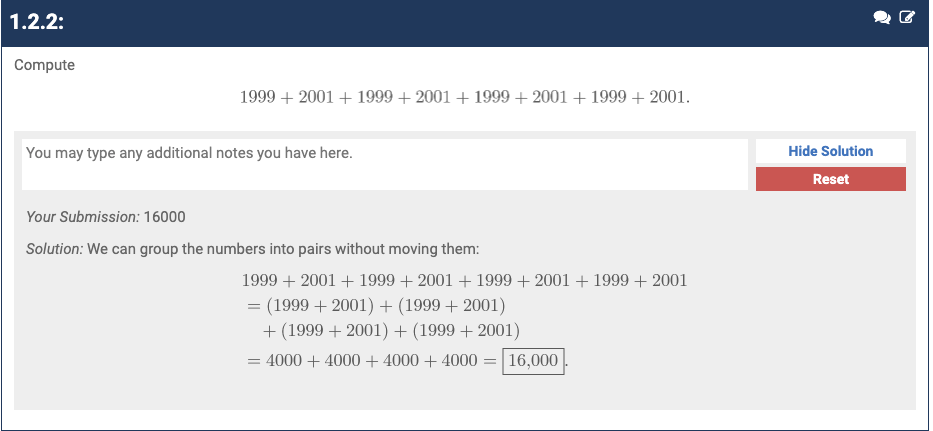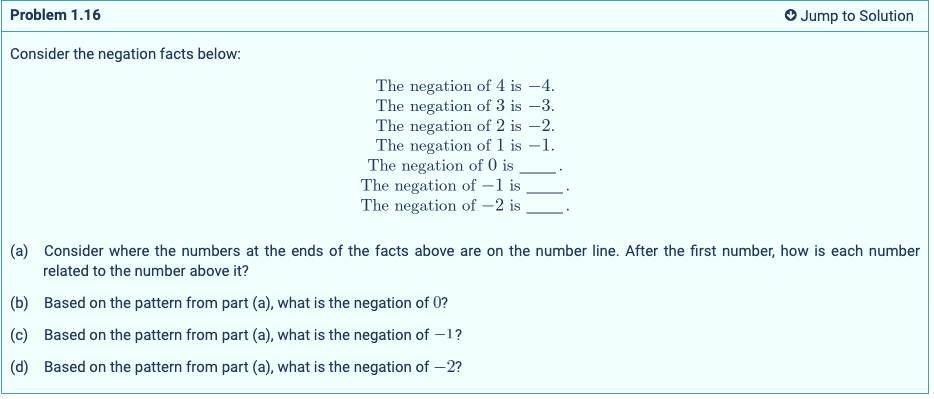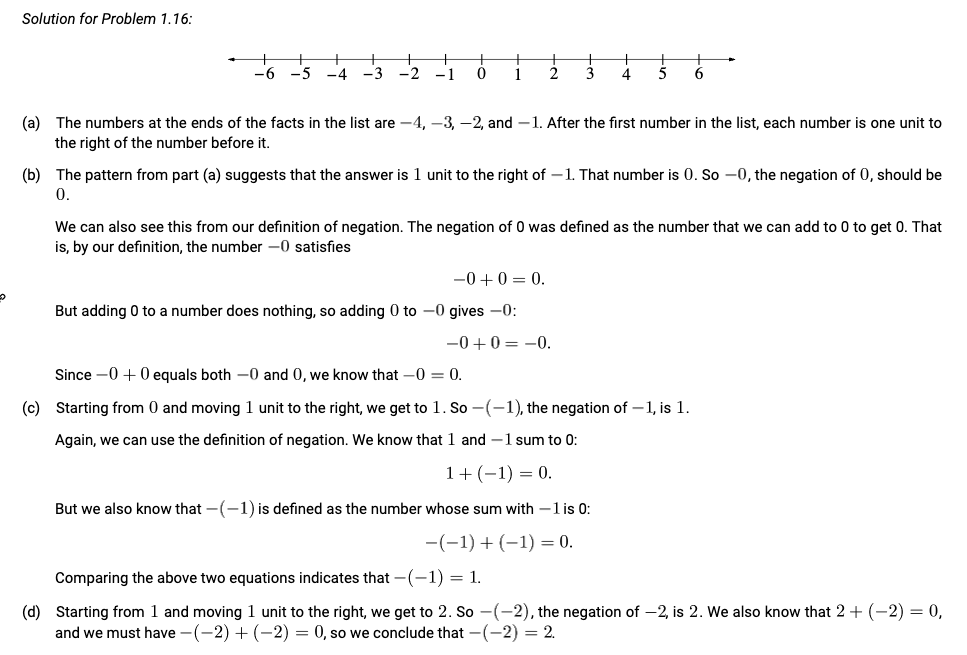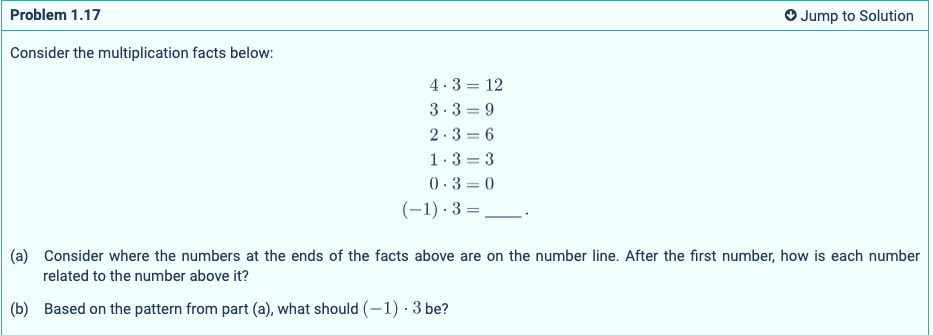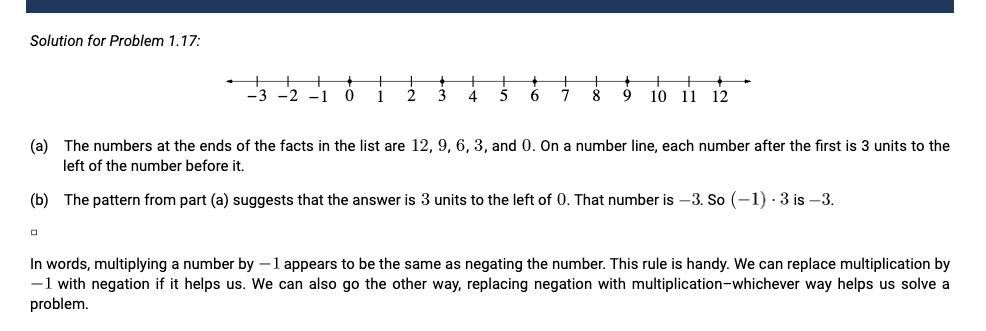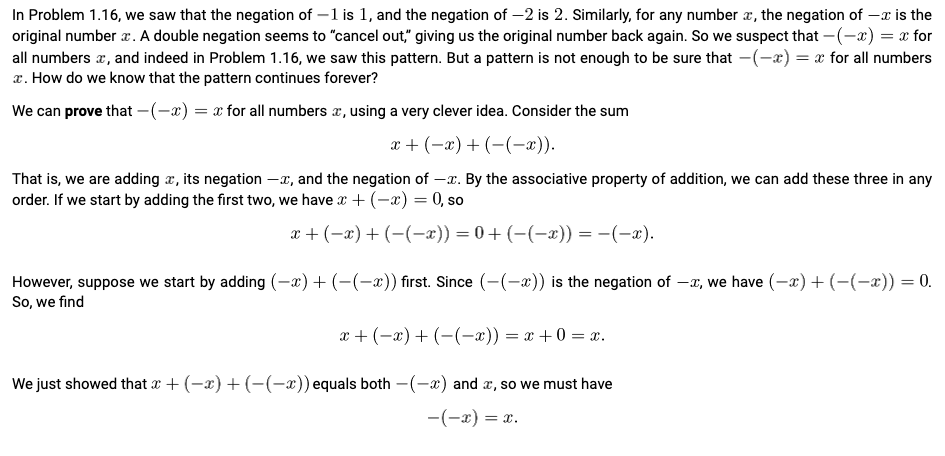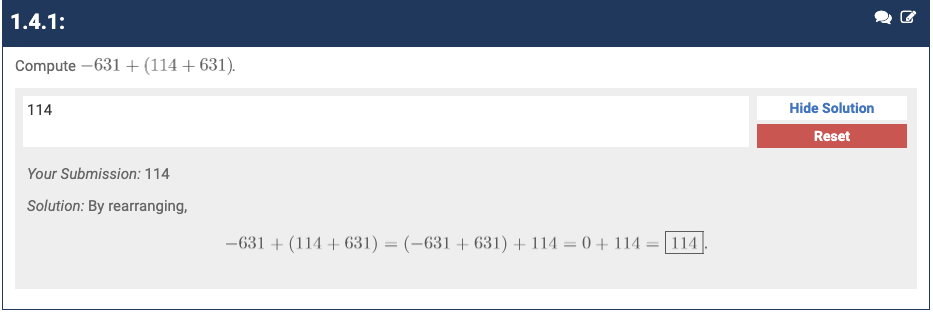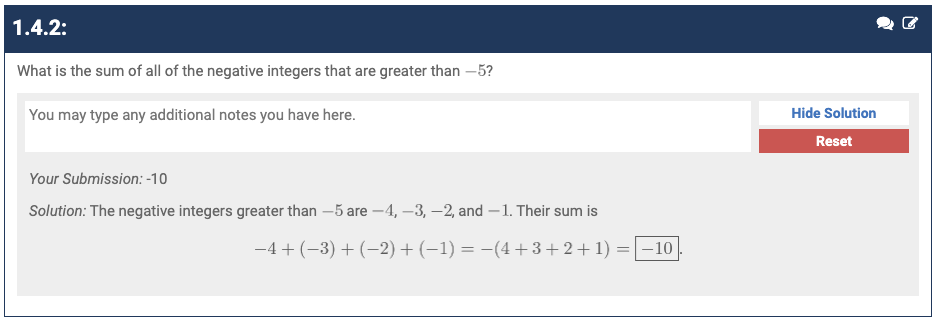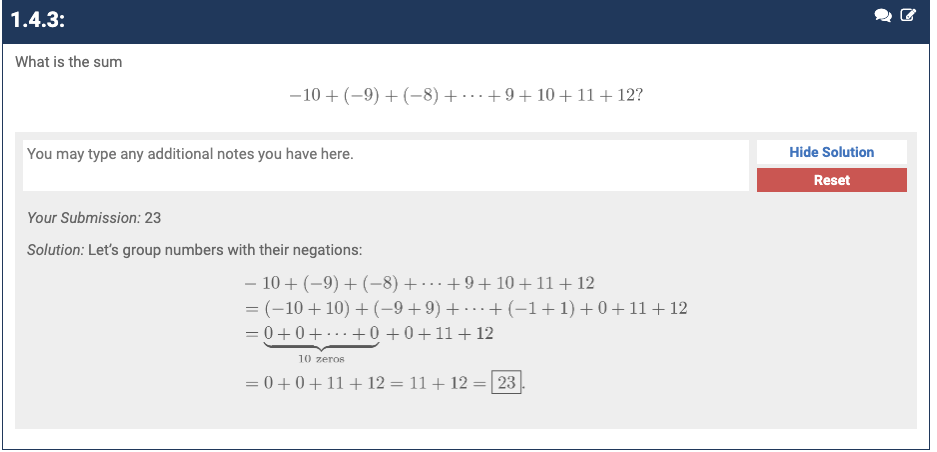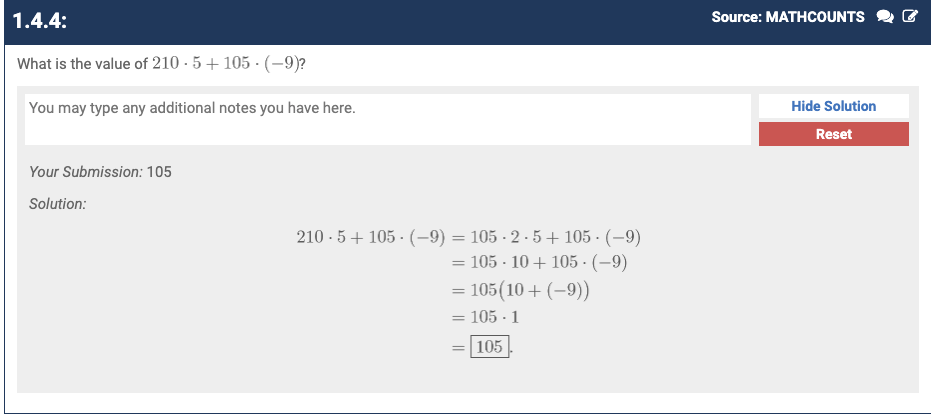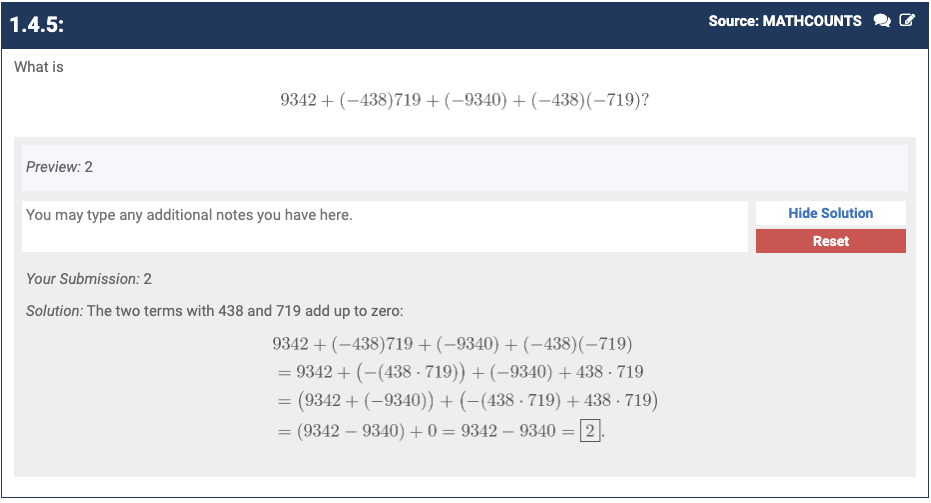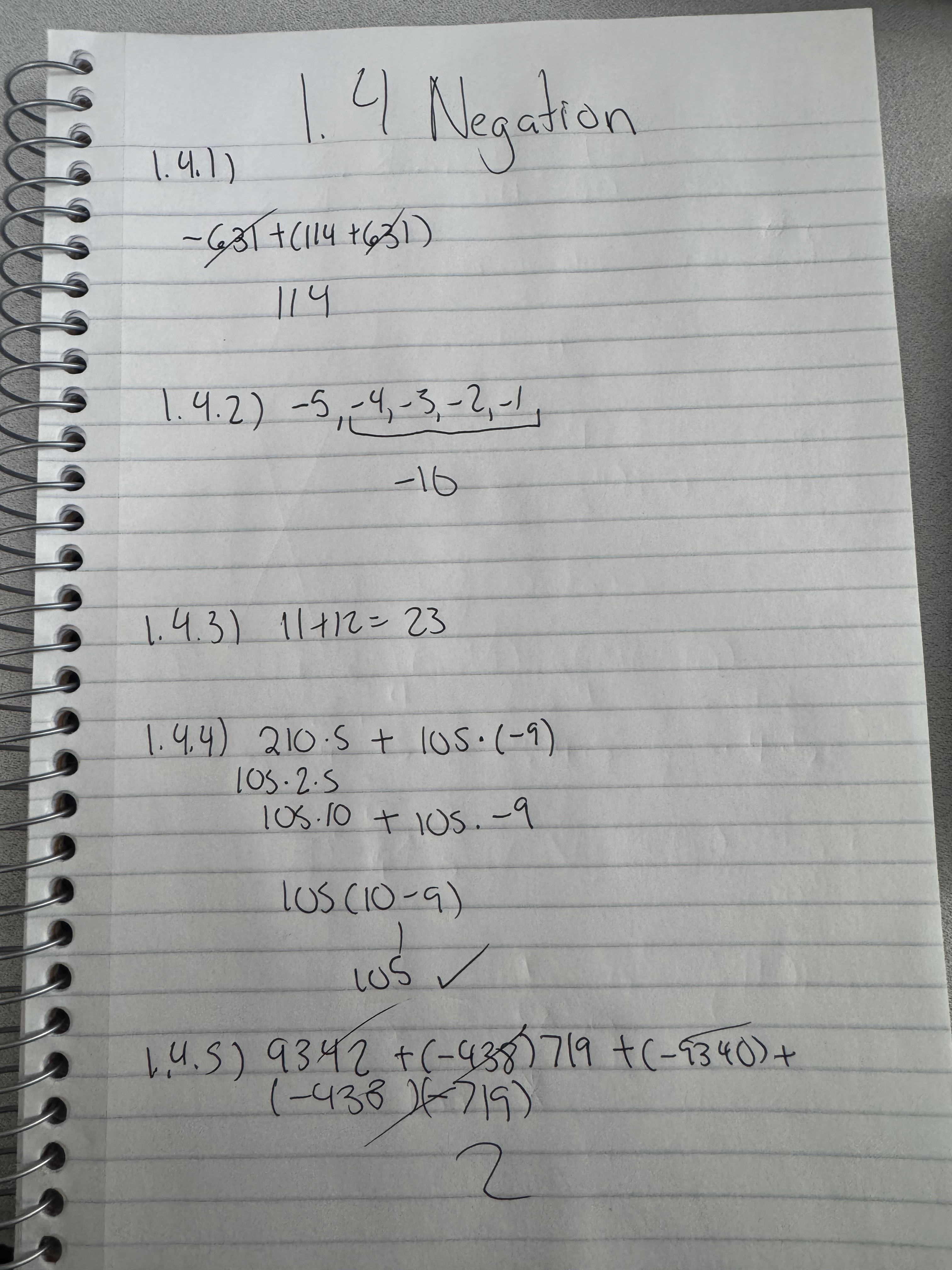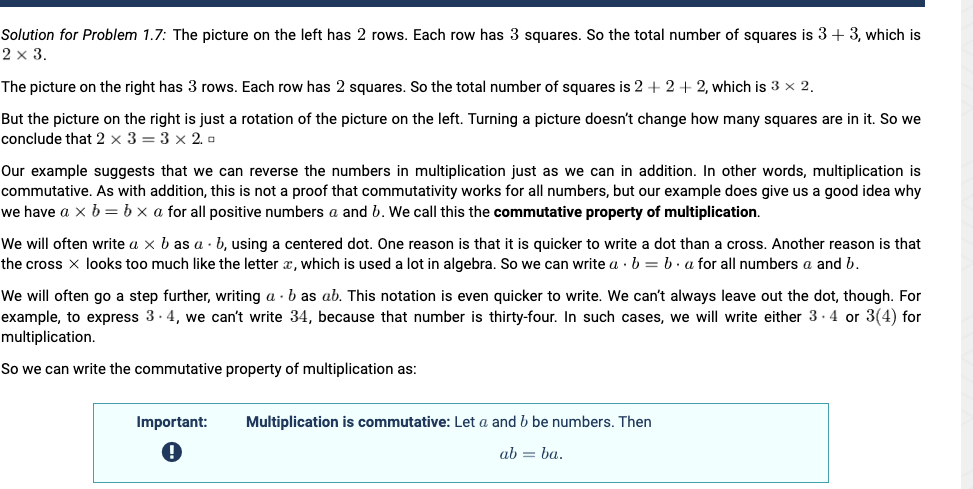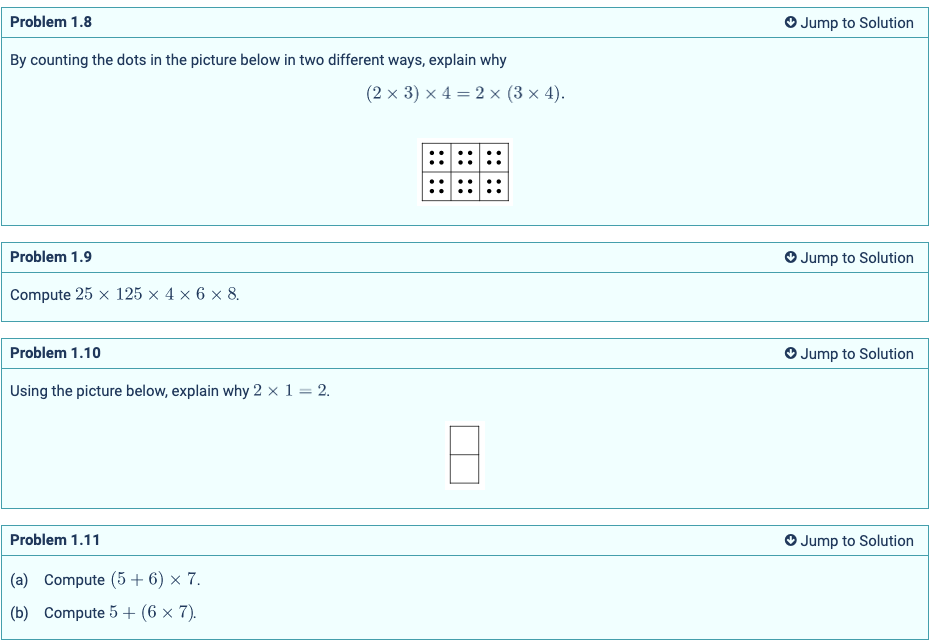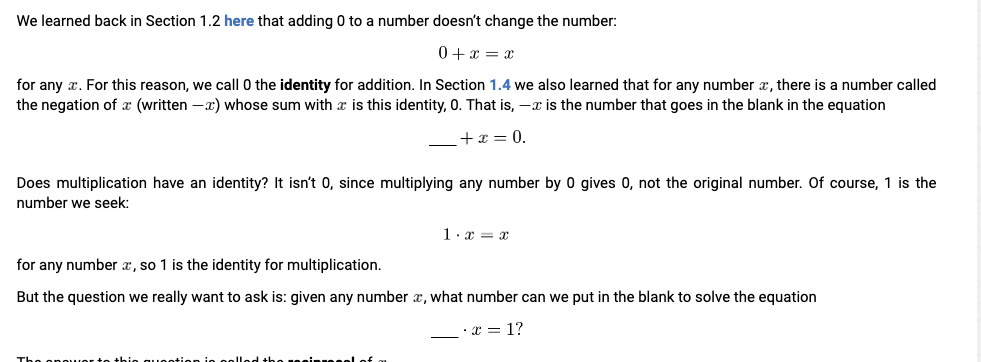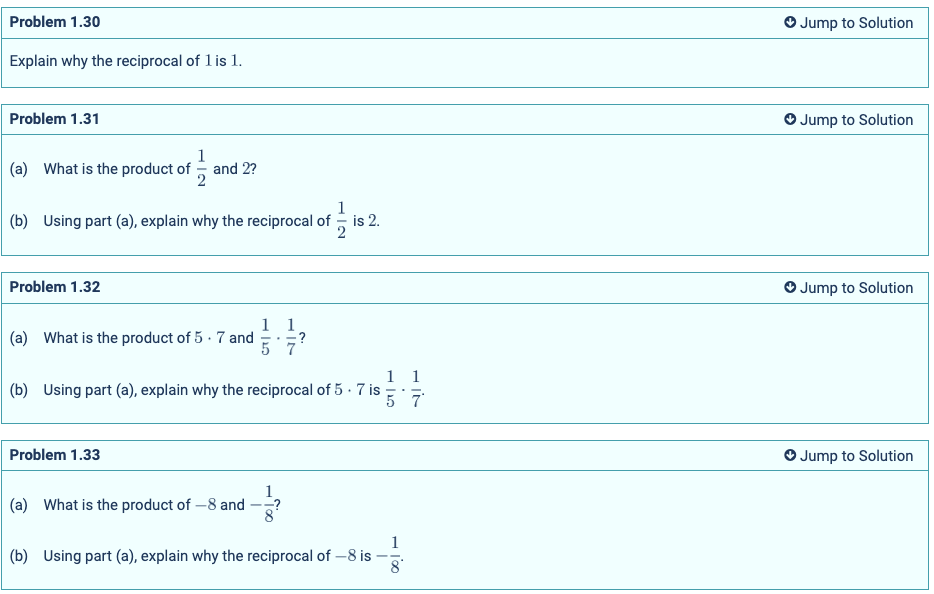Project Summary
Goal
What’s your goal? Why do you have that goal? How will you judge success and failure? What bigger picture goals or values are you pursuing? How is this relevant to CF?
My goal is to finish Art of Problem Solving’s Pre-Algebra textbook. I want to work on some basic math stuff. I will have succeeded at this project when I have read all chapters in the textbook and completed all the problems. This is related to getting better at basic math skills for philosophy. Learning math is relevant to CF.
Plan
What’s your plan? How big is the project? What resources do you expect it to require and what have you allocated for it? How confident are you about succeeding? What sort of errors or error rate do you expect and how will you deal with that? Got any error correction mechanisms? What are the risks of not finishing the project or failing and do you have any plan to address those risks?
Spend at least 15 minutes a day with a two day buffer. I do intend to do more than that, probably an hour a day, but I just want to make the goal small. I’ve gone through a lot of this textbook before. Part of this is review and part of this is getting feedback from stuff I previously just self-studied.
I don’t know how big the project is. I don’t think its that big. I remember going through it in the past pretty quickly while feeling like I understood things okay. I don’t have any projects to compare to (of my own I mean).
I’ve finally got my schedule shortened and gotten shorter shifts on many days. So I have more time available to put towards CF.
I’m fairly confident about succeeding. I nearly finished this math textbook in the past while being a bit busier with a poorer lifestyle.
I expect some days to be too tired to do stuff. So I gave some buffer. I also made the goal short so that I will do a bit everyday and (probably) end up doing more.
On the math side of things one error I expect to run into is rushing things. Idk how to address this other than I intend to be more methodical in doing my math problems.
I’m unsure of any risks of failing this project. Mmm. I have a habit of dropping stuff like this and revisiting stuff later. I think thats a risk. Though this is only the second time I’m touching this textbook, with other stuff in my life I have re-done the basics a bunch because of dropping stuff. That seems like a waste of time. Idk how to address that risk directly. I just kinda aimed to make this a manageable project so I don’t end up dropping it. I also think finishing my latest college math class gave me some confidence.
Other People
What help are you asking from others? What value are you offering to others? Will you complete the project independently if no one else participates? Why are you sharing this with others? What sort of criticism do you want?
Feedback on some stuff I don’t understand.
Idk if there’s any value here to others (this is partially just my tutoring stuff done as a project, I thought it would be neater this way). Mmm. I think there’s some value in seeing how others learn and think about stuff.
Context
What’s the context? What’s your relevant background and track record? Why are you prioritizing this over alternative projects? Why are you doing it right now? What have you already done?’
I like math. I liked the math class (more-or-less) I just recently finished. I’m trying to build a record of doing stuff and I feel like doing something like math, which I really like, would help with that.



